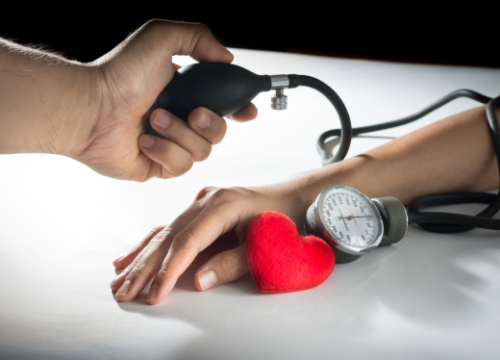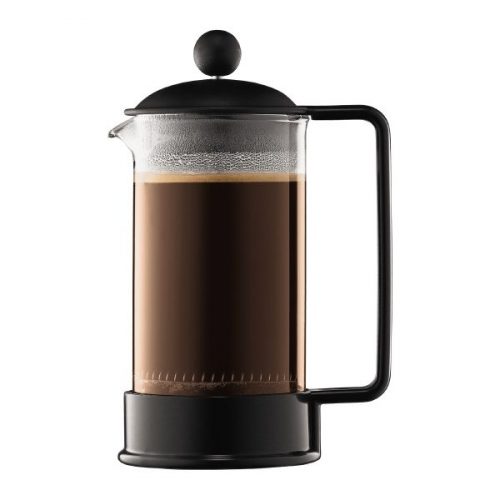Are you a coffee lover who enjoys the rich flavor of French press coffee but is worried about its impact on your health? High blood pressure is a common health concern and it’s understandable that you’d want to know if this delicious beverage could put you at risk.
In this blog post, I’ll explore the relationship between French press coffee and why and how it can raise your blood pressure so that you can make an informed decision about your coffee consumption.
What Ingredient in French Press Coffee Can Cause High Blood Pressure?

It’s important to understand what in French Press coffee actually causes high blood pressure.
While there are many factors that can contribute to this condition, one of the primary culprits is called caffeine. This compound is a natural stimulant that can temporarily raise your blood pressure levels.
Although the effects are usually mild and short-lived, in some people, they can be more significant.
Why Is High Blood Pressure More of a Concern With French Press Coffee Specifically?

Interestingly, caffeine is present in both drip coffee and French press coffee. However, because of the brewing method used in French press coffee, it usually contains higher levels of caffeine per cup.
When you brew coffee using a French press, the coffee grounds soak in hot water for several minutes before plunging, which can increase the overall caffeine content.
So if you’re sensitive to caffeine, or you have high blood pressure, it’s worth being cautious about your French press consumption. But caffeine isn’t the only factor to consider when it comes to French press coffee and blood pressure.
Another Reason Why French Press Coffee Can Cause Higher Blood Pressure

Another crucial element is cafestol, a compound present in coffee oil.
While this compound is not present in filtered coffee, it is found in French press coffee. Cafestol has been linked to higher levels of LDL cholesterol which is the “bad” cholesterol that can contribute to heart attacks and strokes.
While the link between cafestol and high blood pressure is not as clear, it’s absolutely worth considering its potentially negative effects on your cardiovascular health.
Should I Drink Coffee If I Have High Blood Pressure?
If you have high blood pressure, you first need to consult with your doctor before drinking any coffee because thanks to research, we know that consuming too much caffeine can cause a temporary elevation in your blood pressure.
So depending on your lifestyle, diet, and medications you are on, your doctor may advise you to limit or avoid coffee altogether.
How Do You Remove Cafestol From French Press Coffee?

If you still want to enjoy French press coffee while limiting your exposure to cafestol, there’s a simple trick.
Before you plunge your coffee grounds in hot water, add cold water first and stir the mixture for 10-15 seconds. This will help to reduce the amount of cafestol that ends up in your brew because it will be extracted from the coffee grounds much more quickly.
You can also try using a paper filter when you use the French press as this will also help to reduce cafestol levels. Coffee filters help to prevent the coffee grounds from coming in contact with hot water, so any cafestol present will be filtered out.
What Are Some Other Unhealthy Side Effects of Drinking French Press Coffee?
Along with a potential increase in blood pressure and triglycerides, French press coffee can also have an adverse effect on your digestive health.
This is because of the chemicals present in unfiltered coffee such as cafestol which can irritate the lining of your stomach. This can lead to problems like indigestion, heartburn, jitters, and even stomach ulcers in some cases.
Does French Press Coffee Raise Triglycerides?

Coffee, including French press coffee, can also raise your triglyceride levels. This is because of the caffeine content which can trigger the release of catecholamines (hormones) that increase triglyceride production in your liver.
These hormones also play a role in raising blood pressure, so it’s important to consider both when making decisions about your coffee consumption.
In fact, five cups of French Press coffee have been linked to a definite increase in triglycerides, so it’s definitely something to keep an eye on.
Summary
In summary, French press coffee, like all coffee, contains caffeine and cafestol, which can affect your blood pressure and cholesterol levels.
However, when consumed in moderation, it’s unlikely to have a significant impact on your health. If you’re worried about high blood pressure, it’s worth being mindful of your coffee intake and speaking to your doctor about your overall cardiovascular health.
For most people, though, there’s no need to give up that delicious, rich cup of French press coffee – just enjoy it in moderation and savor every sip.